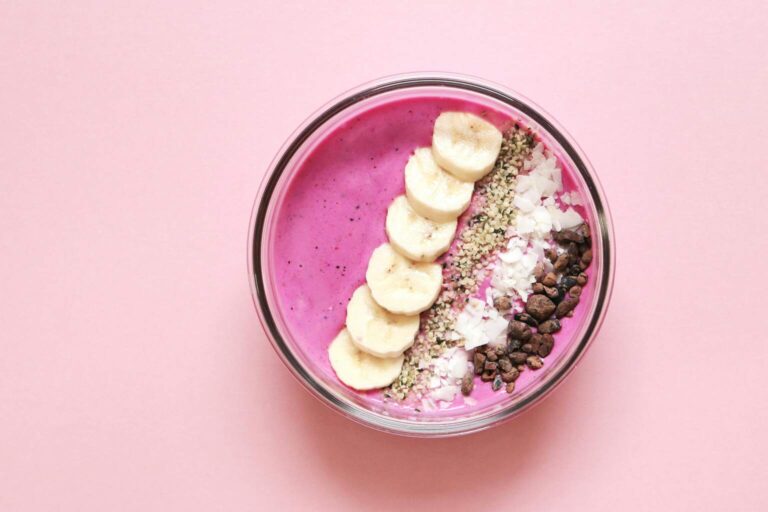Self-care practices rooted in tradition have manifested in the form of skin care. In the use of natural skincare ingredients. This is due to the influx of Korean beauty standards on the general population today. And of the wide association, it takes as a practice towards better mental health.
Understanding skin has never been more important. Beyond the need to serve as a beauty standard, it has been acknowledged for wellness. The need for awareness of benefits inside and out has proven imperative.
Why use natural skin care products? Mothers in Asian households would universally agree that the best natural skincare ingredients can be found in the kitchen. Natural ingredients for glowing skin have always been catered to the Indian masses. It is easy to opt for organic and natural skincare ingredients.
What Are The Benefits Of Using Organic Skin Care Products?
Modern beauty industries reaffirm the need for science-backing. An organic science-backed natural ingredient does not operate as an oxymoron. Science-backed ingredients are those that are researched and reviewed extensively. They have ample evidence supporting the safety of usage on skin.
The presence of one ingredient does not make up the whole product. While organic skin products boast the presence of trending natural skincare ingredients, the concentration of every ingredient makes a difference.
Benefits of using natural ingredients for the skin incluce:
- Gentle on skin
- Less likely to cause irritation, allergic reaction
- More suitable for sensitive skin
- Rich in antioxidants
- Reduces symptoms of aging
- Longer-lasting results
- Improves skin elasticity
- Improves hydration and radiance
- Deep nourishment and protection
- Improves appearance
- Improves overall health
- Environment-friendly
15 Natural Skincare Ingredients To Use – Backed By Science
Listed below are the best natural skincare ingredients you can use without worrying about adverse reactions:
1. Coconut oil
The benefits of coconut oil for skin are endless. Among natural healing oils, inclusive of sensitive skin, it is recommended as a natural moisturizer. It contains lauric acid, used to develop monolaurin, an antimicrobial agent and pathogen-fighter. Virgin Coconut Oil (VCO) has “been traditionally used as a moisturizer for centuries.” It has also shown aid in “restoration of cutaneous homeostasis.”
Coconut oil is a top contender as:
- Natural moisturizer
- Natural antioxidant
- Anti-inflammatory
- Promotes wound healing
- Boosts collagen
- Improves hair health
Essentially, it is marketed as one among the perfect natural skincare ingredients for dry skin. Though among natural skincare ingredients for oily skin, it is a spell for disaster. Using coconut oil on the face may cause breakouts and irritate sensitive skin. In such cases, it is recommended to use moisturizers that contain coconut oil as one of their natural skincare ingredients.
2. Hyaluronic acid
This has been marketed as the top product for anti-aging, besides retinol. It boasts “55% increased hydration as measured by corneometry.” Essentially, it forms a barrier between the skin and the external environment. This helps preserve surface water, preventing dryness. As a humectant, it attracts and preserves water. Making it generally safe to use for all skin types.
Benefits of hyaluronic acid include:
- Improves suppleness
- Restarts natural hyaluronic acid production
- Hydrating
- Wound treatment
3. Niacinamide
A liberal form of Vitamin B, niacinamide, is an underrated natural skincare ingredient. Its properties make it easy to combine. Combinations with AHAs and BHAs to be avoided as they reduce efficiency and causes irritation.
Benefits include:
- Moisturizing
- Regulates sebum production
- Anti-inflammatory
- Fights sun damage
- Skin-brightening
Its otherwise well-tolerant nature makes it suitable for all skin types. It has shown “improvements in the appearance of aging in facial skin.” Studies show “35-68% inhibition of melanosome transfer” and “reduced cutaneous pigmentation” in differing models.
4. Vitamin C
Rated as one of the most effective among natural skincare ingredients. Known for its ability to repair and restore skin from environment-related skin damage. Though common, it requires more in-depth study before use. The versatility of Vitamin C makes it tricky. Formula Botanica adds extensive information on the same.
Benefits include:
- Anti-oxidant
- Stimulates collagen
- Evens skin tone
- Skin-brightening
Minimalist, embracing the clean beauty challenge, employs organic skincare ingredients. Their 10% Vitamin C serum for the face is considerably potent. Studies show “significant improvement in skin elasticity.” It proved “effective in reducing skin hyperpigmentation in some,” and “in a dose-dependent manner” for UV-induced pigmentation.
While it is suitable for all skin types, degrees of concentration should be heeded. Normal and oily skin benefit from 10-20% concentrates (L-ascorbic acid variant). Dry, sensitive skin benefits from gentler variants like sodium ascorbyl phosphate or magnesium ascorbyl phosphate.
5. Ceramides
Ceramides are known for water retention. It conserves a healthy skin barrier. REN Clean Skincare maintains that “ceramides are the glue that hold our skin cells together.” It qualifies among all natural skincare ingredients as it is naturally found in the skin.
Around the age of 25, the body produces fewer ceramides. Causes dryness, skin irritation, dehydration of the skin, and a damaged skin barrier.
Benefits include:
- Moisturizing
- Reinforcing the skin barrier
- Anti-aging
- Soothing, for conditions like eczema and rosacea
Among proven natural ingredients for skincare, ceramides are a popular choice for all skin types. Though recommended for sensitive skin and in natural acne remedies, a patch test is always recommended.
RELATED READING: Skincare Ingredients That Should Not Be Mixed
6. Retinol
A type of retinoid, retinol is a derivative of Vitamin A revered for its properties of anti-aging. While it exists in animal and plant sources, it can also be produced synthetically. Cosmetological uses occur in “anti-wrinkle treatments, improvements of texture, dyspigmentation, dryness, and fine lines.”
Benefits of natural skincare ingredients like retinol include:
- Promotes cell turnover
- Improves skin elasticity
- Encourages firmness of skin
- Addresses acne
Though suitable for all skin types, the concentrate percentage needs to be checked. Lightweight retinol for acne-prone, oily skin is recommended. Adding moisturizers with retinol creams is a good combination for dry skin. Sensitive skin should consider low concentrations or natural alternatives of retinol combined with a moisturizer. For aging skin, higher concentrations are recommended, though gradually.
7. Bakuchiol
A natural compound extract derived from plants, Bakuchiol, has been used in Ayurveda and Chinese medicine. It is extracted from Psoralea corylifolia, also known as “babchi.” It gained recognition for being able to mimic properties of retinol better. For anti-aging, it has solved “irritability and low permeability” in the form of an ionic liquid.
Why it is a better alternative:
- Low irritation potential
- Better for very sensitive skin
- Improves skin texture
- Boosts collagen
Bakuchiol is underrated yet celebrated among natural skin care ingredients that really work.
8. Squalane
A lipid ‘squalene’ naturally produced by skin, is known more for its hydrogenated form ‘squalane.’ Mentioned constantly among natural products for aging skin, its moisturizing effects “increase the dermal availability.” It is mostly obtained from olive oil. It is also sourced from wheat germ, rice bran, and sugarcane.
Notable benefits include:
- Acts as face sealer
- Doesn’t clog pores (non-comedogenic)
- Prevents wrinkles
- Non-greasy feel
Its “skin-hydrating and emollient activities” cater to dry skin. As a non-comedogenic, It also helps revive dehydrated hair. This can be used to reduce breakage or add shine.
9. Green tea extract
Going beyond its traditional purpose of serving as a beverage, it has proven beneficial for skin externally. Studies found that 3% green tea emulsion “decreased the sebum contents.” A 2% tea lotion proved “much more superior” in treatment of acne vulgaris “than topical 5% zinc sulphate solution.”
Benefits include:
- Anti-oxidant
- Anti-aging
- Anti-bacterial
- Encourages glowing skin
Green tea extract can’t exclusively be used as a replacement for sunscreen. Adding it brings a heightened effect of protection against sun damage. While suitable for all skin types, it is good for hydration for dry and sensitive skin. For oily, acne-prone skin, it controls oil and prevents breakouts.
10. Rosemary extract
Extracted from Rosmarinus officinalis, this is better known as the perfect haircare ingredient. For skin benefits, it contains antioxidants known as terpenoids, which fight aging. For UV-induced photoaging, “its bioactive constituents” have shown “promising therapeutic effects.”
Benefits include:
- Anti-inflammatory
- Purifying agent, against environmental damage
- Improves complexion
- Deeply hydrating
Its versatility makes it suitable for all skin types. It soothes sensitive and acne-prone skin. Dry skin can be combated as it has hydrating properties. Rosemary extract products are generally safe.
RELATED READING: Is Snail Mucin The Next Big Thing In Skincare? Let’s Find Out
11. Jojoba oil
Jojoba oil is a popular natural skincare ingredient. Touted for its ability to moisturize skin, it has also gained traction as a customizable ingredient. Due to its unique composition, it is suitable for all skin types.
To “decrease the skin irritation and dryness caused by benzoyl peroxide,” a gellified emulsion anti-acne agent had been created.
Benefits of jojoba oil in skincare:
- Hydrating
- Anti-oxidant
- Balances sebum production
- Non-comedogenic
- Anti-aging
It can be used on hair for deep conditioning. Also works as a makeup or nail polish remover, cuticle oil, and lip balm!
12. Shea butter
Shea butter is a highly regarded ingredient due to its healing properties. Rich in Vitamins A and E, and fatty acids. The versatility of shea butter makes it flexible to use in moisturizers, lotions, and lip balms. Also, as body butters and deodorant sticks.
A histological study showed slightly significant healing in the normal structure of proliferative granulation tissue. Though certain shea butter products soothe burns, they manage acne and stretch marks. Stalls aging by “preventing transepidermal water loss (TEWL).”
Benefits of shea butter:
- Deep moisturization
- Anti-inflammatory
- Non-comedogenic
- Manages acne, stretch marks
With plenty of antioxidants, it is perfect for dry skin.
13. Soy
Derived from soybeans, soy extract acts as a regenerating agent. Soy contains isoflavones, which influence cytokines in the immune system. There is potential anti-inflammation as it “influences inflammatory cytokines like IL-6,” 8, and 12. Isoflavones “have also demonstrated an anti-psoriatic effect.” Studies show the presence of genistein in soy as a “useful agent for preventing intrinsic aging.”
Benefits of soy are:
- Improves complexion
- Improves skin elasticity
- Stimulates hyaluronic acid production
- Natural source of Vitamin E
14. Tea tree oil
Tea tree oil is derived from Melaleuca alternifolia. Recognised as a star natural skincare ingredient as it is:
- Anti-bacterial
- Antifungal
- Anti-inflammatory.
A study on the effectiveness of Tea Tree Oil (TTO) was conducted with different types of gel preparations. Corresponding to requirements of drug content and pH, it was concluded that “designed formulations containing KTZ (Ketoconazole) with TTO could be a valuable alternative for treatment of fungal infections.”
Other benefits include:
- Soothes irritation
- Improves complexion
- Maintains skin elasticity
It joins the ranks of natural oils for hydration while used correctly. Though suitable for all skin types, it is more beneficial for oily, acne-prone skin. It reduces irritation in dry skin. An irritancy test proved that “the score was low” (0-5% or 0.2505 for 100% neat). For sensitive skin, diluted tea tree oil is recommended along with a patch test.
15. Hydroxy acids
“Chemical” exfoliants, AHA, BHA, and PHA are acids that help with skin exfoliation and renewal. They are mostly derived from fruit and plant extracts.
Alpha Hydroxy Acids (AHAs), the most common, are water-soluble. They can be found in:
- Lactic acid locks moisture
- Glycolic acid skin regeneration
- Malic acid stimulates collagen
- Citric acid regulates pH level, and levels skin tone
- Mandelic acid is an antioxidant, anti-bacterial
- Tartaric acid moisturizing, healing
AHAs are involved in “metabolic pathways and essential cell cycles,” on dermal and epidermal levels. When applied, it promotes cell renewal by stimulating “the exfoliation of epidermal cells,” promoting smooth skin.
Beta Hydroxy Acids (BHAs), an oil-soluble, is known as salicylic acid (SA). Benefits include:
- Unclogs pores
- Anti-inflammatory, anti-bacterial
- Reduces pigmentation caused by sun damage
- Prevent wrinkles
- Deep conditioning
Studies have proven that formulations of SA have shown promising results when combined with polyethylene glycol. Especially as a peeling agent, “using the 30% formulation.”
Poly Hydroxy Acids (PHAs) are natural humectants, helping skin maintain hydration. Benefits include:
- Ideal for sensitive skin, for eczema and rosacea
- Limited anti-oxidant
- Regenerative
Notable regenerative properties were reported in the “accelerated wound-healing potential of biocompatible poly(3-hydoxyalkanoates)-co-(6-hydroxyhexanoate) (PHA-PCL).”
While a formulated combination of the three are used, it is important to consider concentrations. Gentler AHAs or PHAs are recommended for dry or sensitive skin. And BHAs for oily, acne-prone skin.
Conclusion
It is no wonder that we use organic skincare products. With so much research and science-backed evidence, there is no need to look beyond natural skincare ingredients. The constant evolution of science in the beauty and cosmetic industries is worth keeping an eye out for. Which among these have you already introduced into your skincare routine? We hope these recommendations will help you confront choices with more gusto!
FAQs
1. Is natural skin care really better?
Yes. There is a constant flood of information regarding skincare regimen. Brands these days genuinely cater to its population vouching transparency. They are considerate of all skin types. Products lean towards restorative health and long-term wellness.
2. What are some natural ingredient skin care brands?
Natural skin care brands include The Ordinary, Minimalist, Bare Necessities, Juicy Chemistry, and Lotus Botanicals.
Rare Beauty Vs Rhode: Which Celebrity Beauty Brand Is More Sustainable




